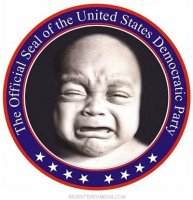I agree with your last two statements completely. It works.
You did never state employees should share equally in the profits of a company. But you do agree with Obama's position that if a business owner is netting over $250K, that owner should be taxed more severely. Supporting equal outcomes versus equal opportunity. If it's good enough to be forced down the throats of the rest of the citizens of the country, why isn't it good enough for you personally?
Just how would a tax increase impact small business? Should the owner just suck it up and allow his net profit to fall only 3%? Or is the cost of taxation passed along to the consumer? If consumers won't pay the extra costs, what then happens to the overall health of the business, and hence the employees?
Those in Maryland already got hit in July with a tax increase. Maybe your employees didn't notice, but I did.
The Heritage Foundation is a serious think tank, and has been for many years. I trust their reasoning and conclusions far more than MoveON.
Re, business taxes: Businesses enjoy many tax advantages individuals don't.
For instance, I can drive a nice company vehicle and it is a business tax deduction. As previously mentioned, business owners can receive a good salary while the company, overall, shows a loss... And, therefore, incurs no tax.
According to the
US Census Bureau, in 2004 there were 25,409,525 business firms in the US. Of those firms, 19,523,741 (76.8%) had NO employees.
In 2006, the total number of nonemployer firms had risen to 20,768,555
with receipts of $970,384,137,000.
They breakdown as such:
Corporations: 1,353,461; Receipts - $166,144,520,000
Individual proprietorships: 18,177,466; $632,026,843,000
Partnerships: 1,237,628; $172,212,774,000
Source
One of the main reasons to form a corporation or LLC, as opposed to a proprietorship, is to limit liability and to protect assets. (Small businesses can enjoy the benefits of both the sole proprietorship and corporation by forming a Sub Chapter S corp.)
So why do 87.5% of nonemployer businesses elect to be sole proprietorships or even go into business at all?
I'm thinking, in a large part, it has to do with the tax advantages.
Re, the Heritage Foundation: I reiterate my previous statement. The HF letter carefully chose statistics that would have conservative emotional impact.
- The 46% home ownership figure doesn't break out the elder poor whose homes may be paid for.
- It carefully avoids statistics like how many of the families have to rely on food stamps.
- It avoids mentioning how many of the families are on welfare as opposed to being "working poor".
And on and on...
I have used HF information on a number of occasions but only when the information appears to be unbiased.








